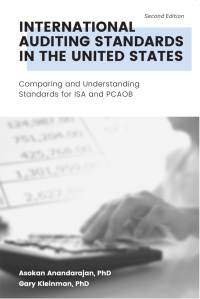Question
Watson Company has several investments in the securities of other companies. The following information regarding these investments is available at December 31, 2016. 1. Watson
Watson Company has several investments in the securities of other companies. The following information regarding these investments is available at December 31, 2016.
1. Watson holds bonds issued by Fowler Corp. The bonds have an amortized cost of $600,000, and their fair value at December 31, 2016, is $700,000. Watson intends to hold the bonds until they mature on December 31, 2022.
2. Watson has invested idle cash in the equity securities of several publicly traded companies. Watson intends to sell these securities during the first quarter of 2017, when it will need the cash to acquire seasonal inventory. These equity securities have a cost basis of $500,000 and a fair value of $620,000 at December 31, 2016.
3. Watson has a significant ownership stake in one of the companies that supplies Watson with various components Watson uses in its products. Watson owns 5 percent of the common stock of the supplier, does not have any representation on the suppliers board of directors, does not exchange any personnel with the supplier, and does not consult with the supplier on any of the suppliers operating, financial, or strategic decisions. The cost basis of the investment in the supplier is $1,400,000, and the fair value of the investment at December 31, 2016, is $1,800,000. Watson does not intend to sell the investment in the foreseeable future. The supplier reported net income of $200,000 for 2016 and paid no dividends.
4. Watson owns some common stock of Stein Corp. The cost basis of the investment in Stein is $300,000, and the fair value at December 31, 2016, is $250,000. Watson believes the decline in the value of its investment in Stein is other than temporary, but Watson does not intend to sell its investment in Stein in the foreseeable future.
5. Watson purchased 25 percent of the stock of Love Co. for $500,000. Watson has significant influence over the operating activities of Love Co. During 2016, Love Co. reported net income of $200,000 and paid a dividend of $50,000.
Required:
Determine whether each of the investments described should be classified as available-for-sale, held-to-maturity, trading, or equity method. And determine the reason of your classification.
Step by Step Solution
There are 3 Steps involved in it
Step: 1

Get Instant Access to Expert-Tailored Solutions
See step-by-step solutions with expert insights and AI powered tools for academic success
Step: 2

Step: 3

Ace Your Homework with AI
Get the answers you need in no time with our AI-driven, step-by-step assistance
Get Started


